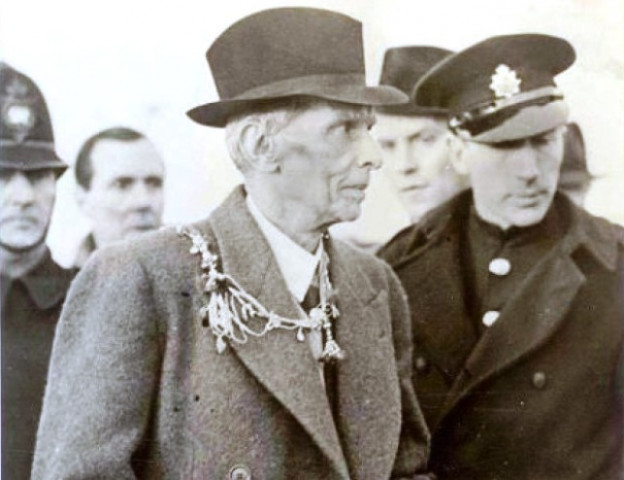No sooner had I finished reading Mohammad Hanif’s full interview with The News, that I dragged a carton of canned food into my basement and braced myself for a storm of nationalism that I knew would inevitably follow. And when, pray tell, have I ever been wrong?
A blog appeared recently, as scathing as one would expect it to be, blasting Hanif’s audacity to think that Jinnah really isn’t anyone’s hero. Mr Waqas bluntly implies that freedom of speech is limited to those who speak favourably of Quaid-e-Azam and the other heroes we have been assigned.
Indeed, if you have nothing nice to say about Jinnah, Allama Iqbal, Minar-e-Pakistan, Waar and meethi lassi, you must be prepared to relinquish your Pakistani identity and take a one-way trip across Wagah border into Amritsar.
The message is simple and one that resonates with many ‘patriots’ across the country – we are not a nation of independent thinkers who are free to choose our own heroes. We are a personality cult and our membership here is hinged upon our undying reverence for Jinnah, our beloved founder.
Before my own membership is threatened, I suppose I should immediately admit that I am a great admirer of Jinnah myself. No, I don’t say this just to ward off the jingoists. Pakistanis collectively owe a lot to Jinnah’s perseverance, leadership and wisdom. How much we owe him, can be estimated from the fact that the word ‘Pakistanis’ would not have existed in my previous sentence without him.
The problem, which Hanif was likely referring to as well, is that the nation is undecided as to who Jinnah was. We know of Jinnah, the founder of Pakistan, but Jinnah as a person is nothing more than a Rorschach test – an irregular blot of ink manifesting as a disciplined Islamic leader in one Pakistani’s dreams and a liberal champion of minority rights in another’s.
Because Quaid-e-Azam is the esteemed founder of our country and has been elevated to the status of the infallible throughout decades, it is easier for each of us to re-imagine him as being perfectly on board with our political ideology and religious school of thought.
That is more convenient than finding out who Jinnah really was. Imagine the horror of discovering that Quaid, the errorless, believed in things that are entirely contradictory to your worldview.
To save ourselves the anguish, our heroic Jinnah is a liberal right-winger standing up for secular democracy with an occasional martial law and equal treatment of all religious groups, except for Muslims who are to be treated with special privileges.
This hero isn’t real.
He’s a fantasy because he cannot be all those aforementioned things simultaneously. What’s worse is that we make our decisions in 2014 based on the thought processes of a man from a very old and different world.
What would Jinnah have said if he were here with us today?
“Who in heaven’s name is Twitter, you say?”
The Jinnah I believe in, would’ve been more outraged by the blind fervour of his inadvertent followers and their interpretation of his stance as sacred and timeless, than by freethinking writers like Hanif who do not believe in the accident of birth choosing their heroes for them.
The difference between myself and Mr Waqas is that I would not call him a ‘pseudointellectual’ and urge him to ‘know his boundaries’ when it comes to opinionating on personalities of national significance.
His perspective, ultimately, is as valid as Hanif’s and though I will state my disagreement, I will not try to impress on him that his freedom is ‘limited’, unlike mine.
I stand with Hanif: Jinnah is not a 'hero'
We are a personality cult and our membership is hinged upon our undying reverence for Jinnah, our beloved founder.



COMMENTS
Comments are moderated and generally will be posted if they are on-topic and not abusive.
For more information, please see our Comments FAQ